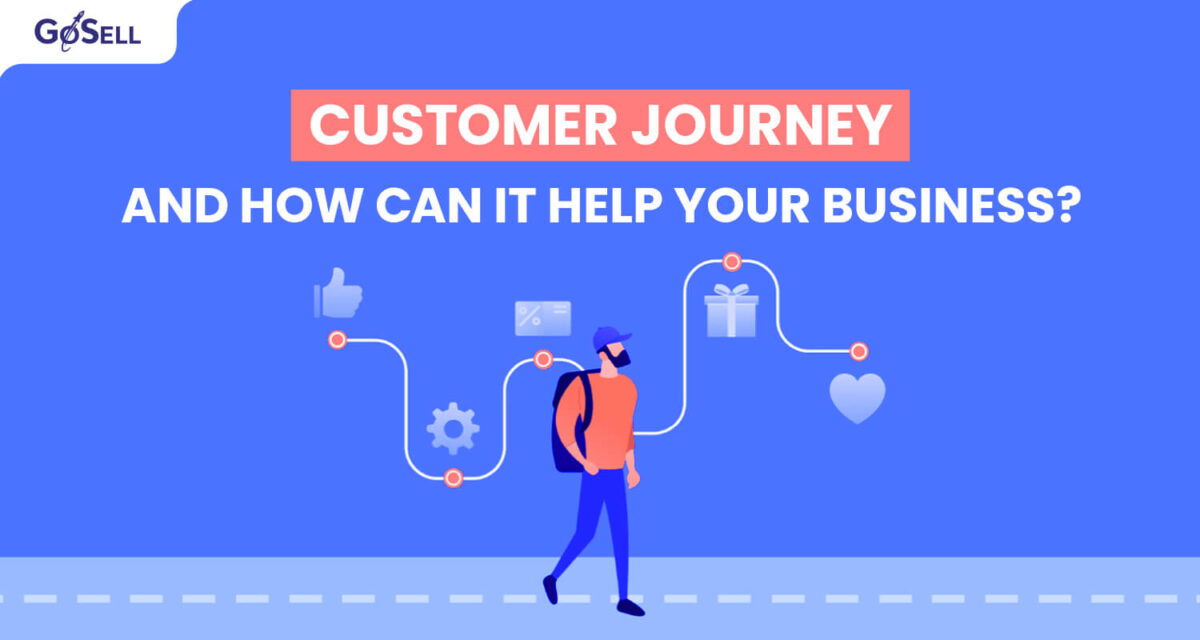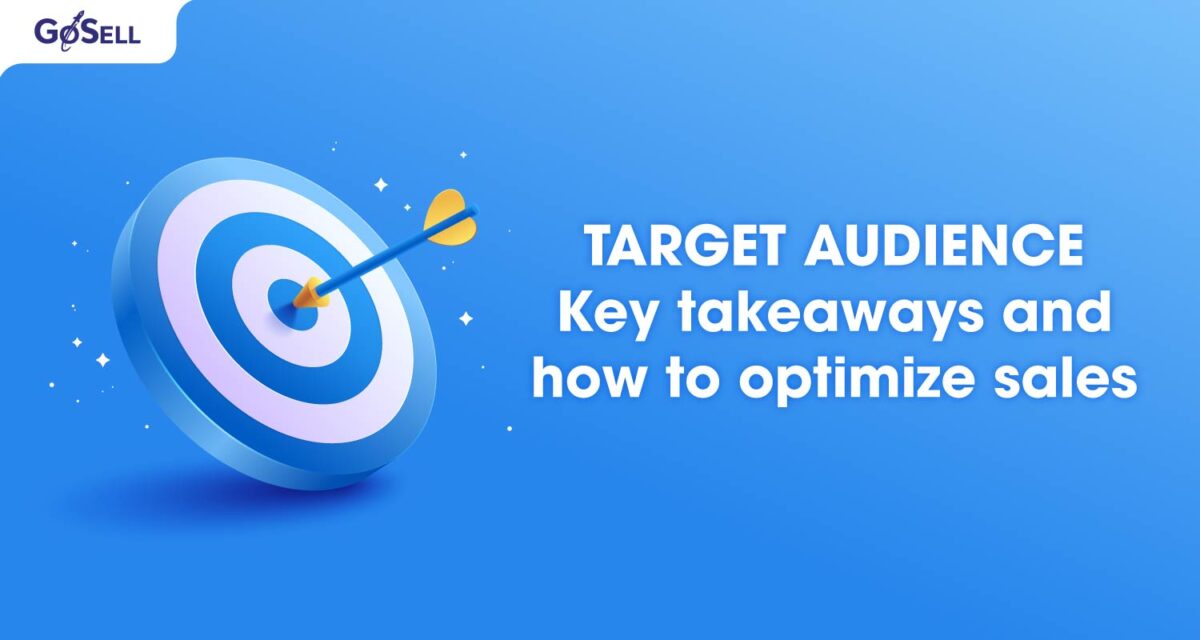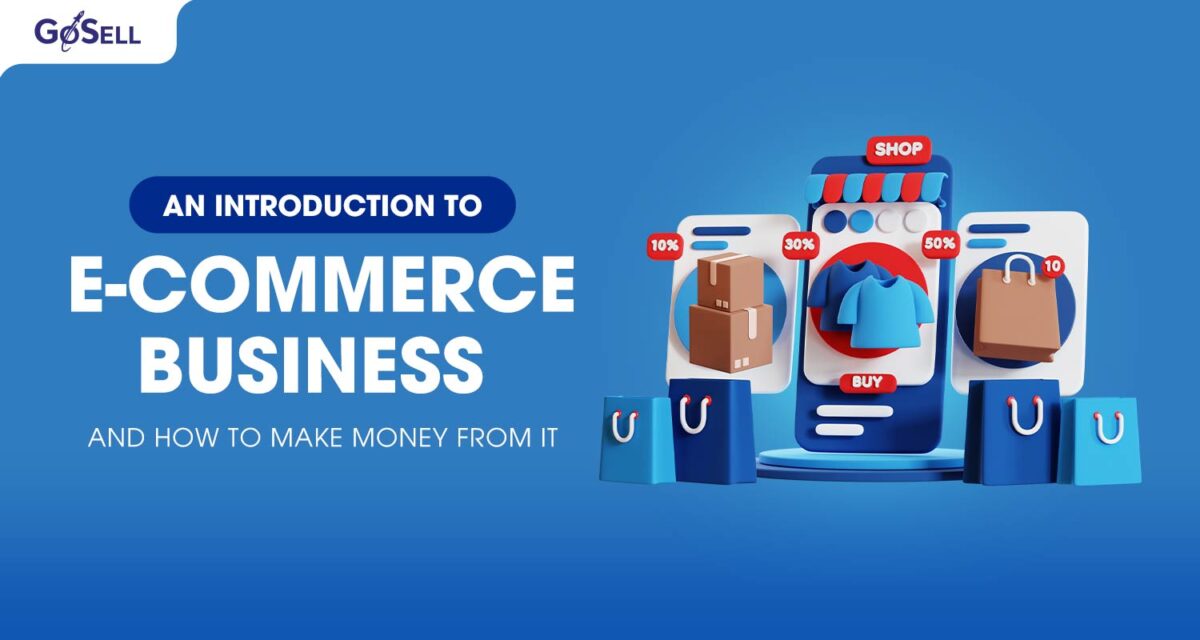It takes both theory and practice to develop a digital marketing strategy that resonates with users. It necessitates that marketers utilize statistics and methodologies to design paths that have the highest return on investment. They must also be imaginative enough to consider and test other routes to the same objective. The debate over whether business owners should use omnichannel or multichannel methods to create a suitable marketing plan and drive the proper kind of interaction continues to rage as they investigate and deploy new tactics.
There was a compelling need to mix different marketing channels because they each presented different opportunities and obstacles. And as a result of this demand, multichannel and omnichannel marketing methods were born.
Omnichannel vs multichannel marketing are not the same, despite their initial similarities. If so, this article is right for you. Here, GoSELL will compare omnichannel and multichannel in-depth and point out each strategy’s benefits, drawbacks, and potential uses.
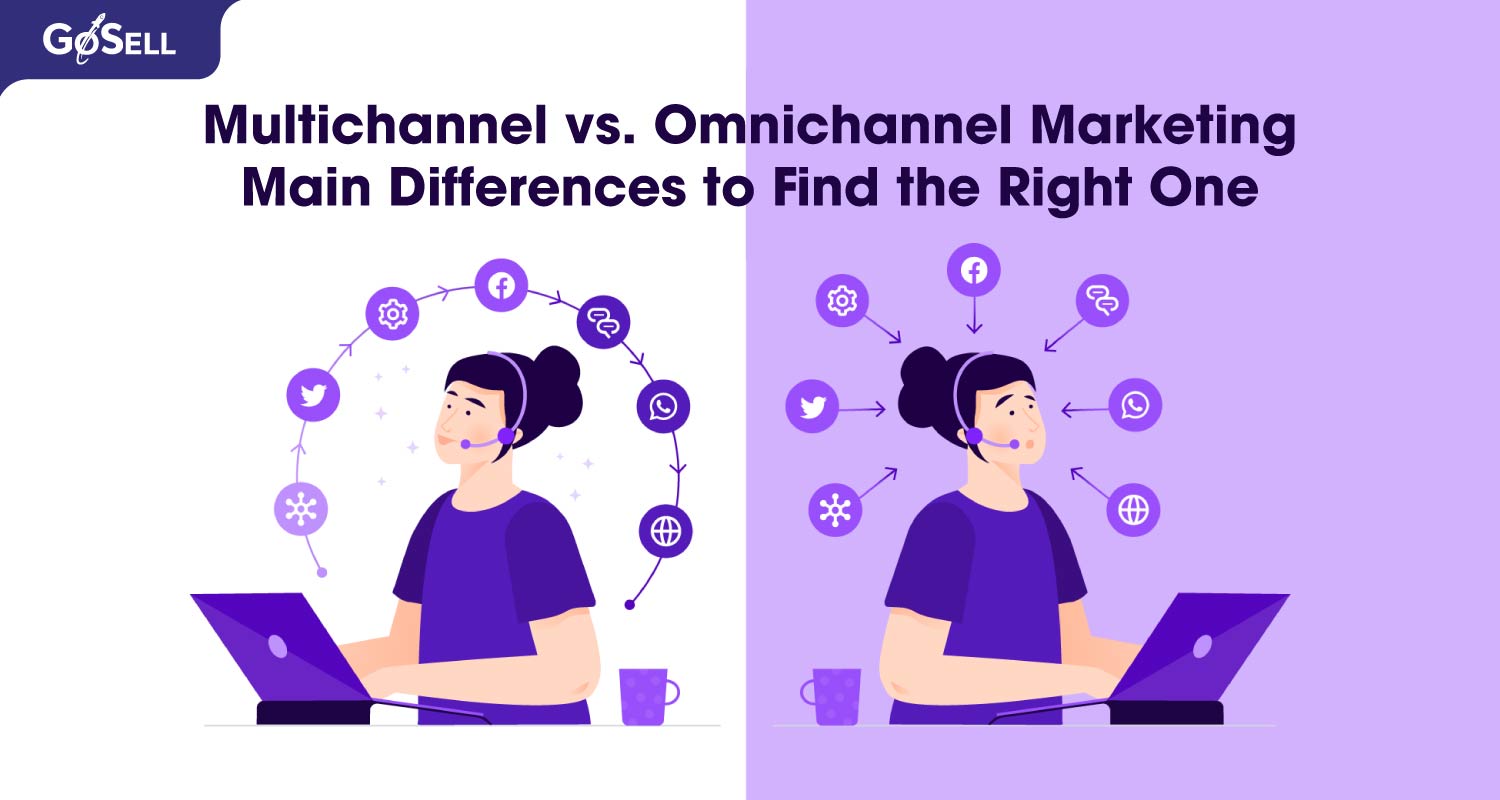
What does multichannel mean?
Multichannel (or also known as multiple channels) marketing is simply understood when a business uses a variety of platforms as many as possible to connect with customers and sell their product.
The definition
Multichannel marketing tactic used by companies to engage customers and maintain ongoing communication with them. The customer has the option to interact with whichever channels they like with this type of marketing, which spans several channels. In order to establish which channels their target demographics are more likely to use, businesses need to conduct research on and understand their customer base. Businesses can start utilizing those channels to reach clients and increase sales once they have come to these conclusions.
Segmenting direct and indirect client interactions is a component of multichannel marketing. Websites and physical stores were the traditional forms of multichannel media. Later on, though, it spread to encompass things like chat, email, and social media sites. These channels are all isolated from one another even though they are all a part of the same thing. Silo creation is the result of this lack of integration. Although it could appear to be a barrier, one of the objectives of multichannel marketing is to assure that the online and offline parts are separated to retain simplicity and make the structure simple to administer.
Through the use of many channels, multichannel marketing aims to get a user from point A to point B. For instance, you might promote a certain promo code on a blog post, a social media account, and an email newsletter with the goal of encouraging readers to use the code to purchase or interact with a good or service.
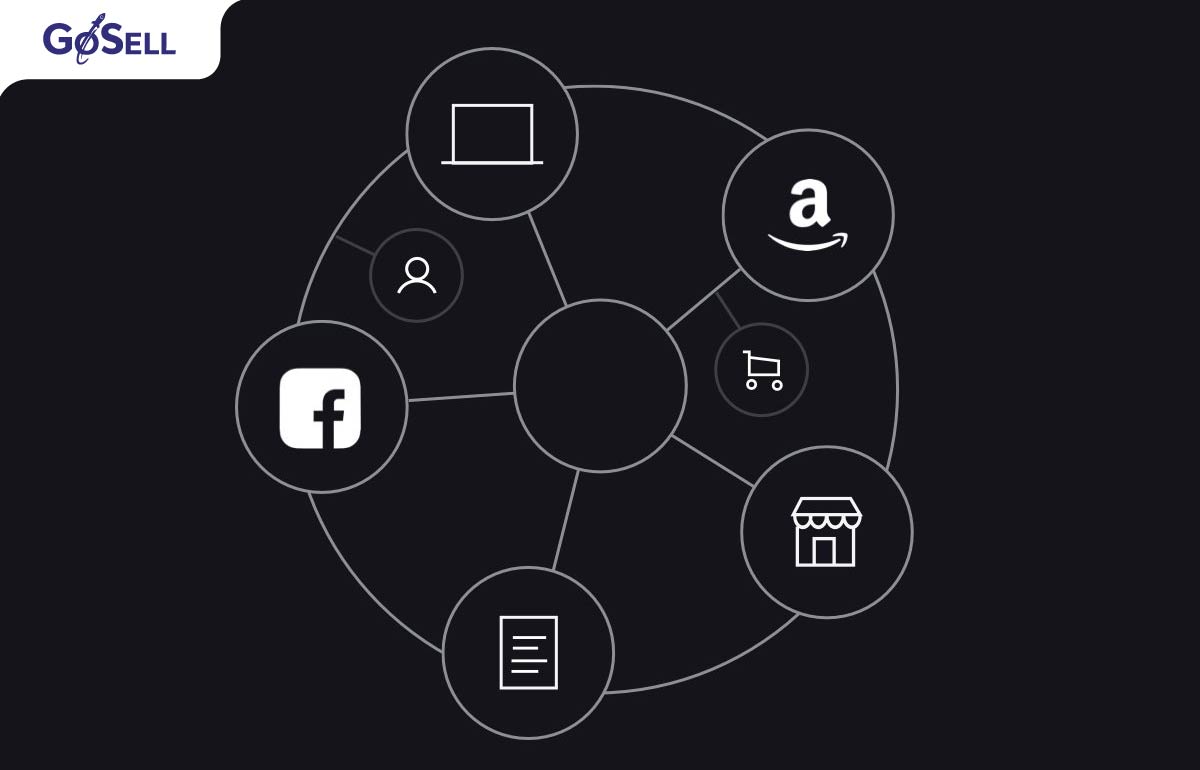
The example
Let’s imagine Emma – your potential customer is looking for a new pair of earrings and interested in buying jewelry. Taking her situation as an multichannel marketing example so that we can see the message’s flow and her road to the product.
There is a day that she sees your brand advertising on social media about a discounting program for earrings. Then she is excited to visit your website to buy it. On your website, you also display information about that sales program. However, she can not use the code since the code is only for loyal members and she is a new one, she has to use another code. To find a suitable code for herself, she has to call the customer service of your brand and contact via email. After consultation via phone calls and email response, she eventually made a purchase successfully. Emma received business’s information via many channels: social media, website, call center and email. That is how businesses use multichannel marketing tactics to increase sales.
However, you can see that her experience was interrupted so she was not engaged well with your brand despite many channels being used. She had to retrace her customer journey each time she changed channels.
What does omnichannel mean?
The term “omni” in omnichannel means “all” which indicates that omnichannel marketing strategy utilizes and combines all channels’s function. This marketing tactic is used for certain channels within the same objectives and message to optimize a business’s coverage.
The definition
An omnichannel marketing strategy unifies all corporate communications across all marketing channels onto a single platform. In order to preserve uniformity, it also makes an effort to combine data about operations and client experiences across the single location. As a result, each channel of communication is aware of what the others are doing. Customers may expect smooth and ongoing interactions as a result at each touchpoint. A comprehensive and integrated communications framework’s consistency also allows for service customisation.
The goal of omnichannel marketing is to engage a user by delivering various types of information via interconnected channels. For instance, a consumer might receive an email advertising a latest product that they can interact with, while being offered a promo coupon on Facebook for the same new product, and seeing a customer story about the product on Zalo.
The example
Taking L’Oréal as an example of using omnichannel marketing. L’Oréal made use of Amazon Marketing Cloud (AMC) to reach customers along their nonlinear buying experiences, create an omnichannel approach, and enhance frequency capping. To make sure they were allocating their money effectively, they also took care to evaluate their campaigns and compare touchpoints. L’Oréal was able to improve the experience for both its customers and their brand by developing an omnichannel strategy that allowed them to target the correct audiences with the right advertisements.
Key differences between multichannel vs omnichannel
Difference in foundations definition leads to different outcomes. The following are a few elements that also set omnichannel marketing apart from multichannel marketing:
Delivering message and communication platforms
The goal of the multichannel strategy is to increase reach by utilizing all available channels of communication. As a result, the message is spread across two or more channels, with social media and email being the most widely used options. Nevertheless, multichannel marketing only uses a small number of communication channels (often just two), and it operates in isolation.
Omnichannel marketing, in contrast, employs a multidisciplinary strategy by integrating all the communication channels with one another and subsequently with the customers. Additionally, it makes an effort to include as many communication routes as possible. Every piece of an omnichannel strategy, from calls to push notifications, would support the ecosystem as a whole.
Planning concentration
The objective of multichannel marketing is to communicate a message. The same message is broadcast across various channels in order to accomplish this. This move centers the strategy around the business.
In contrast, omnichannel marketing places a strong emphasis on the client and their experience. Here, all the channels of communication work together to engage the audience and provide them with a unique shopping experience. Interestingly, companies that employ multichannel marketing may even choose not to transmit the message through some channels in order to uphold goodwill with their clients.
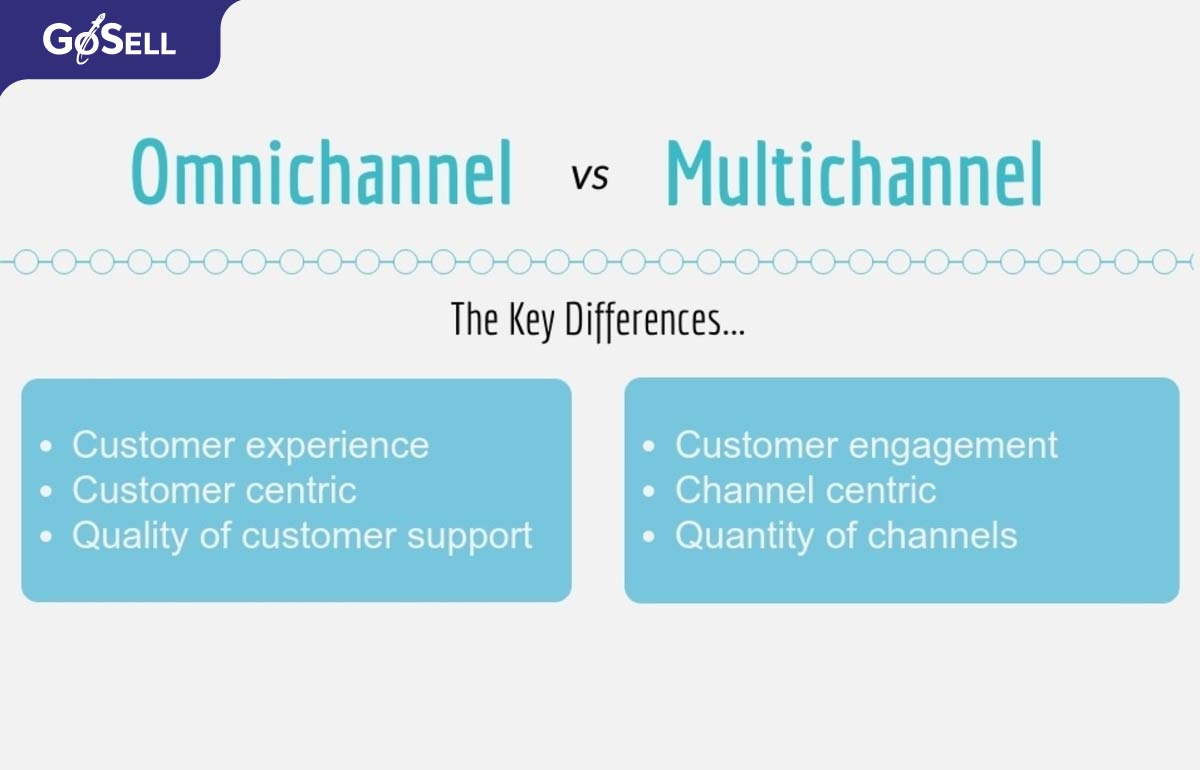
Customization
All communication channels strive to gather data and use it to better understand their clients since omnichannel marketing is interconnected and focused on customer welfare. As a result, your company learns about their needs and expectations through information on their problems, preferences, way of life, demographics, etc. In fact, this data can be so specific that you can pinpoint details like the reasons why specific users leave your app or cart. With this information, you can hyper-personalize everything, from your goods and services to your marketing plan, to suit the preferences of your customers.
Multichannel marketing mostly relies on call to action (CTA) links and buttons to persuade consumers to take action, although the omnichannel environment is highly complex. However, these communications frequently lack personalisation and are generic in nature.
Interaction
Customer involvement is a potent indicator of a marketing strategy’s effectiveness.
Due to a variety of factors, such as a longer customer journey and personalisation, omnichannel marketing sees a slightly higher engagement and conversion rate. Offering value to your customers at every touchpoint will increase their willingness to interact with your brand, which is a logically obvious reality.
In this industry, multichannel marketing is more unpredictable than ever. High engagement rates are possible if the timing and the marketing material are perfect. The gap between the various channels, however, might also be a problem. A customer could become irritated if they receive the same communications by SMS and email, for instance.
Read more: Target Audience: Key takeaways and ways to optimize sales with it
The amount of effort
Multichannel marketing might be more appropriate to address this need if you’re seeking for a simpler way to engage and connect with your clients. The main tasks would be to choose a few efficient marketing channels, learn about their best practices, and carry out the strategy. You even have freedom to slack off or ignore minor details with this comparatively low-effort approach.
However, if a company decides to go the omnichannel road, they must stick with it all the way through! Half-hearted attempts can only lead to system failure and resource, time, and money waste. Not to mention that connecting all marketing channels might be a monumental task that will correspondingly become more difficult as business complexity increases. Additionally, to establish a clear vision and embed it throughout the firm, omnichannel will need the active involvement of businessmen and the C-suite. They are mostly in charge of starting change and keeping it going by offering continual support.
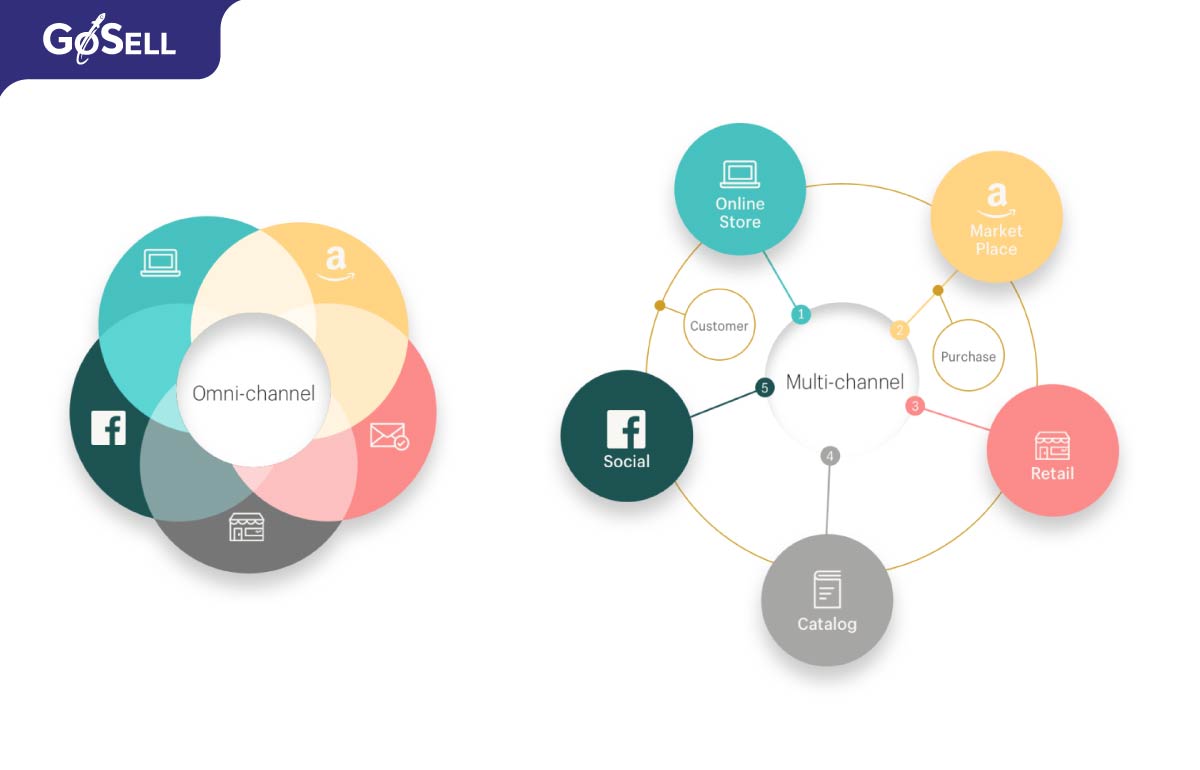
Multichannel vs omnichannel: how to choose the most suitable marketing plan?
Whether you began out as an online or offline brand will largely determine whether you choose omnichannel or multichannel marketing.
When it comes to determining which plan is actually effective for your business, you’ll need to review the differences both multichannel and omnichannel marketing would bring. Also, trying to identify the plan’s objectives clearly based on the SMART (specific, measurable, achievable, realistic, time-bound). In that case, whether you choose multiple channels marketing or omnichannel marketing, the success rate of your plan will be higher.
In addition, your contents or the key message will also help you decide which marketing strategy you should choose. For example, if your strategy is to tell a specific story to the customers, then you will want your customer to focus on that story to understand your business deeper. Therefore the omnichannel marketing strategy will be the most suitable choice. Otherwise, if your message is just to advertise your products in general, the multichannel marketing plan will be a good selection.
Although it is your time to choose between multichannel and omnichannel, GoSELL can help you out in anyways. GoSELL is the best of both worlds. Not only to build a multichannel marketing plan or omnichannel marketing strategy, GoSELL is capable of doing both.
Get started with both multichannel vs omnichannel marketing with GoSELL
GoSELL creates comprehensive solution systems with a focus on business success to assist businesses’ clients in expanding and undergoing a successful digital transformation. In addition to an e-commerce platform, GoSELL provides ultimate product packages and marketing tools with more than 30 features that support businesses optimize efficiency of both multiplechannel and omnichannel marketing, increase revenue and customer loyalty level for businesses. So here are the utmost supportive marketing tools that GoSELL offers your business:
Build a marketing strategy with Create Landing Page, Email marketing and Loyalty programs features
Professional landing page creation
A user-friendly website will help to boost your marketing campaign’s exposure. Also, it is a display and a communication channel that your target audience or existing customers know about your business’s message. Likewise, a landing page with focused content for each marketing plan will help you convince website’s visitors to complete a particular conversion. Therefore, creating a landing page will work for both multichannel and omnichannel marketing plans. With a multichannel marketing plan, you can display your generated contents about product’s selling points as the main message to encourage shopping behavior. On the other hand, providing a landing website that delivers your campaign’s key message about telling a specific story, or the concept, a big idea will help you establish a great omnichannel marketing plan.
Email marketing
As in both marketing and omnichannel strategy, content is one of the significant elements that decide the final results. In addition, email marketing plays a vital role as an essential tactic that every multichannel and omnichannel plans. Businesses should not ignore this tactic. Because consumers nowadays still use email as their key communication method. Therefore, for both omnichannel and multichannel marketing, it will be the key connection for your business to have a conversation with them and encourage them to choose your business. Email marketing is an effective way to convey your words to the target audience or existing customers. This feature helps you to approach them, to remind customers with your campaign’s key message in an omnichannel marketing plan, or remind customers of your brands and products/services in multichannel marketing plans. Email marketing enables marketing campaigns’ improvement to drive revenue efficiently.
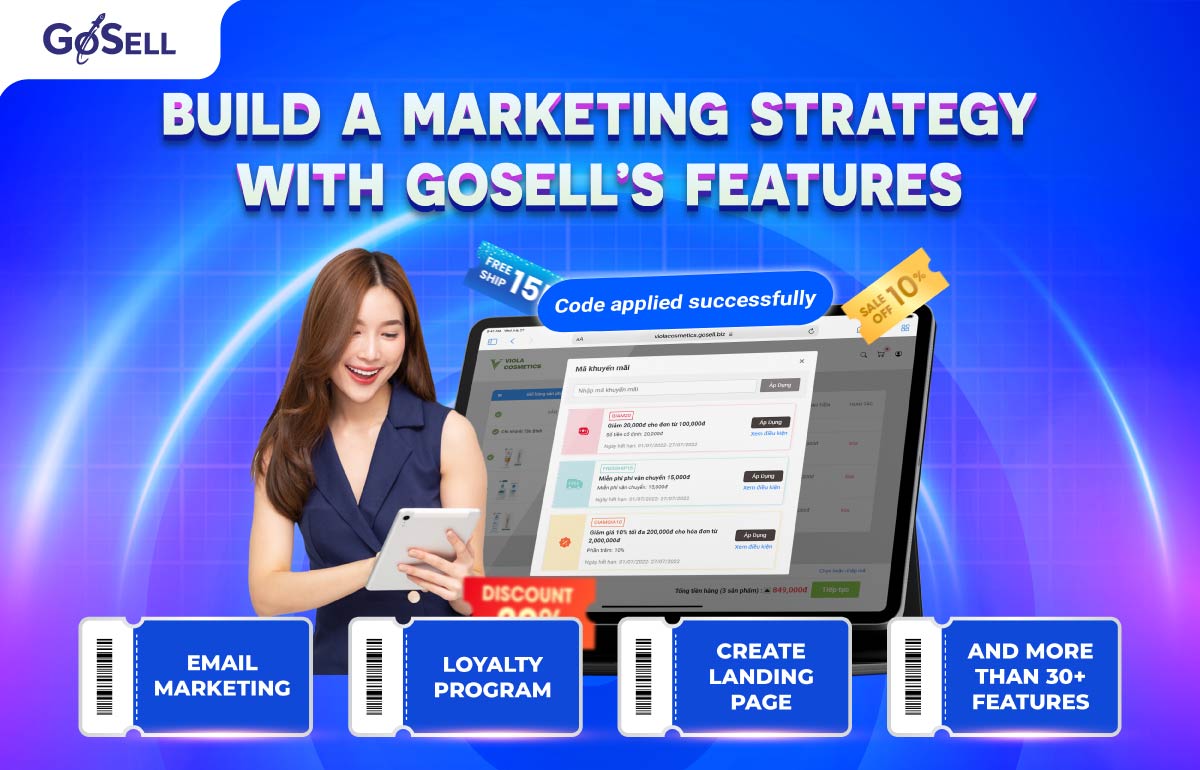
Loyalty program
Whether you are going to build a multichannel or omnichannel, keeping customers to stay with you is always undeniably important. Because a loyalty program can play a crucial role alongside email marketing. These two tactics support each other to create an impactful multichannel and omnichannel strategy. Creating a loyalty program is the feature that GoSELL provides to equip your business as a powerful weapon. This weapon is useful for both multichannel and omnichannel marketing strategy. By using it, you can develop several membership tiers so customers can earn rewards points, incentivize them to purchase more, enhance the quality of their experience, and keep them coming back—all of which will boost sales and successfully promote the brand. When combining both tactics, you can either deliver one single message from your omnichannel plan through one loyalty program to ensure the consistency of your plan; or, you can create different loyalty programs for different types of customers then conveys customers with various messages from your multichannel plans to join your programs.
Win both multichannel and omnichannel marketing with GoSELL’s analysis features
Beside the supportive tools, both multichannel and omnichannel marketing can not be successful without collecting data and analyzing data. So GoSELL offers businesses with tools. Utilizing technologies to track consumer behavior, like Facebook Pixel and Google Analytics, marketing initiatives may become more effective.
Study user behavior by Google Analytics
Whether you develop a multichannel vs omnichannel marketing plan, understanding your consumer behavior is extremely essential. The analytics program Google Analytics was created by Google. It is incorporated on the GoSELL admin page, which aids in forming an overall image of how online business operations should be. To ensure your brand’s exposure, awareness or even identity which will be built in both types of aforementioned marketing, Google Analytics will help you to investigate the consumer’s demands, pain points and insights. Also, it indicates recommendations on your marketing plan for further use.
Collect customer information with Facebook Pixel
For your information, customer information is necessary to be collected in both multichannel and omnichannel marketing. With the capabilities of Facebook Pixel, you may boost Facebook conversion rates by tailoring the quality of your advertising to your target market and creating effective marketing/remarketing campaigns.
Conclusion
Multichannel vs omnichannel marketing seems to be the same, but they are not. They have different meanings and operating ways, but also have similar advantages which you can make use of. Nonetheless, defining them carefully when it comes to implementation will deliver your business an accomplished marketing plan. What is more, whether which of them you are going to choose, you can master both of them easily by using GoSELL. With not only marketing supportive features, GoSELL also provides other outstanding features that your business can use in advance.
For consultancy assistance and additional information about the all-encompassing digital transformation solutions we offer for organizations, get in touch with GoSELL right away.


